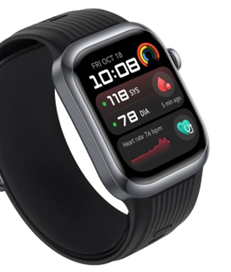Blood
pressure serves as a vital measure of cardiovascular health, often changing as
individuals progress through life. With age, factors such as reduced arterial
flexibility, shifting hormonal levels, and lifestyle habits can influence blood
pressure levels. Understanding these variations is key to proactive health
management. While aging inevitably impacts blood pressure, there are actionable
steps to mitigate its effects. From childhood to old age, monitoring blood
pressure and adopting a healthy lifestyle are essential strategies for managing
this critical health metric. This article explores how blood pressure evolves
through different life stages, highlighting key trends and management
strategies.

Blood Pressure Trends in Children and Teens
Normal Blood Pressure Ranges for Youth
Blood
pressure in children and teenagers varies based on factors like age, sex, and
height percentiles. Unlike adults, where standard ranges are consistent,
pediatric norms are more nuanced. For instance, a healthy blood pressure for a
7-year-old may differ significantly from that of a 14-year-old. Typically,
normal blood pressure for teens ranges around 110/70 mmHg but can vary. Regular
monitoring is essential to detect abnormalities early. This allows healthcare
providers to address potential issues promptly, ensuring young individuals
maintain optimal cardiovascular health as they grow.
Risk Factors for Elevated Blood Pressure in Young
People
Although
rare in children and teenagers, elevated blood pressure can occur due to
various factors, including obesity, high sodium intake, and sedentary
lifestyles. Inherited conditions or chronic illnesses may also contribute.
Promoting healthy habits, such as balanced diets rich in fruits and vegetables
and encouraging physical activity, can significantly reduce risks. Educational
efforts to limit screen time and stress levels further support young
individuals in achieving long-term cardiovascular health.
How Blood Pressure Changes in Adulthood
Blood Pressure Trends in Young Adults
Young
adulthood is often characterized by a focus on education, careers, and personal
growth, but these pursuits can come with stress and unhealthy lifestyle
choices. These factors, combined with dietary shifts and reduced physical
activity, can gradually increase blood pressure. Routine health checkups are
critical for early detection and prevention. Young adults should aim to
maintain an active lifestyle, incorporate heart-healthy foods like nuts and
leafy greens, and practice stress management techniques such as mindfulness or
yoga. Such habits lay a foundation for healthy blood pressure levels throughout
life.
Midlife Blood Pressure Concerns
Midlife
often brings significant changes to blood pressure levels due to declining
arterial elasticity and hormonal shifts. Stress from career pressures or family
responsibilities can also contribute to elevated blood pressure. Frequent
monitoring at this stage is crucial for preventing hypertension and related
complications. Smart devices like the Huawei Watch D2 provide innovative
solutions for managing blood pressure. Its dynamic blood pressure monitoring
feature enables users to track their levels 24/7, providing real-time data and
weekly reports to analyze trends. Beyond blood pressure monitoring, the Huawei
Watch D2 offers comprehensive health tracking, including heart rate, SpO2
levels, and even sleep patterns. Its sleek design makes it suitable for both
professional and casual settings, blending style with functionality.

Blood Pressure in Older Adults
Age-Related Blood Pressure Increase
As
individuals enter their later years, physiological changes such as arterial
stiffening and decreased kidney function make it harder to maintain stable
blood pressure. These changes often result in a rise in systolic readings, even
when diastolic pressure remains stable—a condition known as isolated systolic
hypertension. Managing these age-related changes involves regular monitoring,
adherence to prescribed medications, and lifestyle adjustments. Seniors should
focus on maintaining a diet low in sodium and high in potassium, engaging in
moderate physical activity like walking or swimming, and reducing stress
levels.
Managing Hypertension in Seniors
For
seniors, controlling blood pressure requires a multi-pronged approach.
Medications are often necessary, but lifestyle changes can enhance their
effectiveness. Knowing how to reduce blood pressure naturally—such as incorporating meditation,
consuming more whole foods, and staying physically active—can significantly
improve cardiovascular health. Daily habits like staying hydrated, limiting
caffeine intake, and maintaining a consistent sleep schedule further support
healthy blood pressure levels. Seniors should also engage with healthcare
professionals regularly to ensure tailored care plans that address their unique
needs.
Factors That Influence Blood Pressure Across Ages
Blood
pressure is influenced by a combination of genetic, environmental, and
lifestyle factors that evolve over time. In younger populations, diet and
activity levels are often the most significant contributors. For example, high
sodium consumption from processed foods or insufficient exercise can lead to
early-onset hypertension. In contrast, older adults face risks stemming from
reduced arterial flexibility and other physiological changes. Stress remains a
universal factor across all ages, underscoring the importance of stress
management techniques such as deep breathing, mindfulness, or hobbies that
promote relaxation. Adopting a balanced diet, reducing alcohol and caffeine
intake, and staying active are critical strategies for maintaining healthy
blood pressure. Leveraging tools like wearables for consistent monitoring adds
another layer of support, empowering individuals to take control of their
health.
Conclusion
Age
profoundly impacts blood pressure, making proactive management essential at
every stage of life. From childhood through old age, understanding the unique
challenges of each phase allows for more effective prevention and control of
hypertension. The integration of technology, such as the Huawei Watch D2,
provides individuals with real-time insights and tools to manage their health
effortlessly. With its combination of advanced health monitoring features and
stylish design, it serves as both a practical and aspirational accessory. By
embracing regular monitoring, healthy lifestyle changes, and professional
medical advice, individuals can take charge of their cardiovascular health,
ensuring a healthier and more fulfilling life at every stage.
